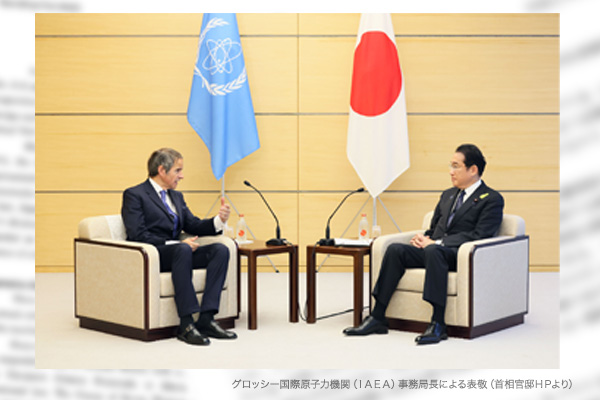In response to the planned ocean release of treated water from Tokyo Electric Power's Fukushima Daiichi Nuclear Power Station, China has announced to toughen radiation testing on seafood imported from Japan, switching from sample inspections to blanket inspections. As a result, Japanese fresh fishes are already stopped at customs in China. Furthermore, Hong Kong has a plan to ban seafood imports from Japan if treated water is actually released. China and Hong Kong account for about 40% of Japan’s seafood exports, being the largest export destination. If the current situation drags on, serious consequences cannot be avoided.
Japan responded that it would “explain carefully with high transparency based on a report by the International Atomic Energy Agency (IAEA) that recognized the validity of the ocean release.” However, can we expect an effect with scientific explanations alone against China, which intentionally takes political measures that are not based on scientific evidence? If Japan is seen as taking no countermeasure, China could be seduced into taking various coercive actions in the future.
Therefore, Japan is required to take both immediate and fundamental responses.
Immediate responses and utilization of the G7
Given that the Chinese action represents arbitrary use of inspection procedures, Japan’s immediate countermeasure should be at the same operational level. This means that Japan should test all seafood imported from China. This can be said as a reasonable measure because it has been found that tritium released from multiple nuclear power plants in China is up to 6.5 times as much as contained in the treated water from the Fukushima facility.
Japan should also explore alternative destinations for seafood such as scallops exported to China and make immediate efforts to minimize the damage through cooperation with the United States, South Korea, Taiwan and others.
In doing so, it is important to make an international appeal. In particular, as the Group of Seven (G7) countries agreed at the recent Hiroshima Summit to launch a framework called "Coordination Platform" to jointly act against "economic coercion," Japan as the chair of the G7 should take initiative to launch this framework as quickly as possible and subject the Chinese action as the first case to share information with the other G7 members and get their understanding.
Urgently required institutional development
In addition, Japan should separately take a fundamental measure. In recent years, China’s “weaponization of the economy” has become common, in which China uses its huge market and supply power to intimidate other countries and force them to change policies. For recent instance, China imposed tariffs on Australian barley and wine in retaliation for Australia’s request for an independent investigation into the origin of the COVID-19 and refused customs clearance for imports from Lithuania that opened a Taiwan representative office. We should expect this kind of coercion from China to continue. Therefore, in addition to operational countermeasures, Japan should prepare a legal system that allows for a variety of measures, including people, goods, money and services, to be selected in response to such economic coercion.
However, Japan is the only G7 member that does not possess such countermeasures. The European Union (EU) and the United States have their own measures to counter China and are preparing countermeasure bills. In contrast, Japan wants to avoid provoking China and is hesitant even to be prepared for developing a legal system.
Despite the high likelihood of being targeted, Japan lacks a sense of crisis and is carelessly prepared. In the midst of this, it has become a target of economic intimidation this time. Japan should awaken to this bitter experience and urgently establish a necessary system.
Masahiko Hosokawa is a professor at Meisei University and a former director-general of the Trade Control Department at Japan’s Ministry of Economy, Trade and Industry. He is also a Planning Committee member at the Japan Institute for National Fundamentals.


